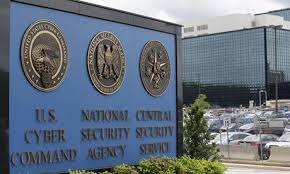
Last Friday President Barack Obama outlined his ideas on how to protect the privacy of US citizens while at the same time continuing to protect citizens from terrorism and other threats.
In his address at the Justice Department Obama said the US will no longer collect and store telephone metadata but will continue to do what it takes to maintain the country’s prerogative to gather intelligence. The National Security Agency, Obama explained, will implement some changes in the telephone metadata program and will end the government’s practice of storing enormous amounts of information concerning the telephone calls of American citizens.
“I believe we need a new approach,” Obama said. “I am therefore ordering a transition that will end the Section 215 bulk metadata program as it currently exists, and establish a mechanism that preserves the capabilities we need without the government holding this bulk metadata.”
Obama’s announcement was the long-awaited response to off-shore and domestic criticism of US surveillance practices since the revelations made by Edward Snowden. Snowden, a former CIA employee and NSA contractor, began leaking classified documents last June exposing questionable spying and surveillance tactics of the NSA.
In his speech Obama insisted that no laws were broken and no one was spied on by the US intelligence community.
“In an extraordinarily difficult job, one in which actions are second-guessed, success is unreported, and failure can be catastrophic, the men and women of the intelligence community, including the NSA, consistently follow protocols designed to protect the privacy of ordinary people,” Obama said. “They are not abusing authorities in order to listen to your private phone calls, or read your emails.”
Obama said that although he will put some limits on how information is stored and accessed by government agencies, intelligence gathering is an essential part of an overall US approach to national security. As long as there are global threats to the US and US interests the US must continue to stay alert to those threats.
“We cannot unilaterally disarm our intelligence agencies,” Obama said. “We know that the intelligence services of other countries — including some who feign surprise over the Snowden disclosures — are constantly probing our government and private sector networks, and accelerating programs to listen to our conversations, intercept our emails, or compromise our systems.”
One solution Obama floated in his speech was the notion of having the telephone information stored in locations within the private sector: either with the phone companies or with a third-party entity which could collect the date from all phone companies. Another possibility Obama mentioned was having other intelligence agency capabilities filling in and taking over the program.


